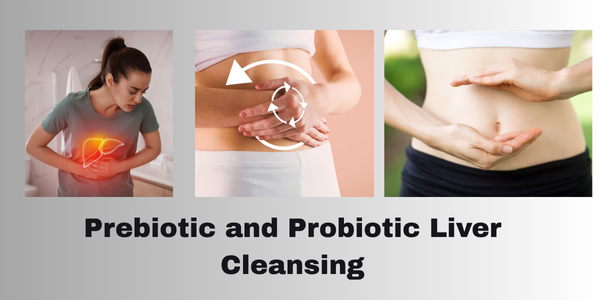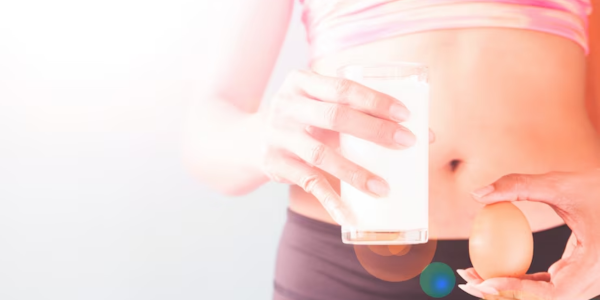Prebiotic & Probiotic Liver Detox: Natural Support for Liver Health
Prebiotic and Probiotic Liver Cleansing: The Gut-Liver Reset You Didn’t Know You Needed

In the world of detox trends and wellness fads, “liver cleansing” is a phrase that gets thrown around a lot.
But here’s the truth: most quick-fix cleanses don’t support your liver meaningfully. If you’re serious about liver health, the conversation needs to shift to something far more fundamental to your gut.
Enter prebiotic and probiotic liver cleansing. Yes, that’s not a typo, it’s a keyword that’s gaining traction online. But more importantly, it’s a powerful concept grounded in science.
Prebiotics and probiotics are emerging as the secret weapons in promoting liver health through the gut-liver axis, and they’re more effective (and safer) than any juice fast or detox tea.
This post will break down the science, bust myths, and give you actionable insights into how prebiotics and probiotics can help your liver do what it does best: detox and thrive.
The Real Job of Your Liver
Let’s start with what the liver actually does.
Your liver is your body’s master detoxifier. It filters toxins, metabolizes drugs, breaks down fats, and produces bile, a substance essential for digestion.
It also stores vitamins and minerals, regulates hormones, and helps manage blood sugar levels.
And here’s what’s often missed: the liver doesn’t work in isolation. It’s in constant communication with your gut. This relationship is so crucial that scientists call it the gut-liver axis.
Why Gut Health Is the Missing Link in Liver Detox?
The gut is home to trillions of bacteria, many of which are essential to your health. When your gut microbiome is balanced, it keeps inflammation low, supports digestion, and even helps regulate your immune system.
But when it’s out of balance a state called dysbiosis problems start to arise. In the case of the liver, dysbiosis can lead to something called leaky gut.
This is where the intestinal lining becomes more permeable than it should be, allowing endotoxins and harmful bacteria to escape into the bloodstream and head straight for your liver via the portal vein.
This constant attack triggers inflammation in the liver and can accelerate conditions like:
- Non-alcoholic fatty liver disease (NAFLD)
- Liver fibrosis
- Cirrhosis
- Even liver cancer
So how do you support your gut in a way that protects your liver?
That’s where prebiotic and probiotic liver cleansing comes into play.
What Are Prebiotics and Probiotics?
Probiotics: The Good Bacteria
Probiotics are live microorganisms, usually bacteria or yeasts that provide health benefits when consumed in adequate amounts. Think of them as reinforcements for your gut’s army of good bacteria.
Common probiotic strains include:
- Lactobacillus rhamnosus
- Bifidobacterium longum
- Saccharomyces boulardii
These friendly microbes crowd out harmful bacteria, strengthen the gut lining, and reduce inflammation.
Prebiotics: Food for the Good Bacteria
Prebiotics, on the other hand, are dietary fibers that feed your beneficial gut bacteria. They’re found in foods like:
- Chicory root
- Garlic
- Onions
- Leeks
- Bananas
- Asparagus
- Oats
When your gut bacteria digest these fibers, they produce short-chain fatty acids (SCFAs) like butyrate, which have powerful anti-inflammatory effects especially in the liver.
The Science Behind Prebiotic and Probiotic Liver Cleansing
Let’s talk about evidence.
Numerous studies have shown that prebiotics and probiotics can have a direct positive impact on liver function, particularly in people with fatty liver or liver inflammation.
1. Reduced Liver Enzymes
- Elevated liver enzymes (ALT, AST) are signs of liver stress. In multiple trials, probiotic supplementation has led to significant reductions in these enzyme levels, indicating less inflammation and better liver function.
2. Improved Lipid Metabolism
- Probiotics help improve the way your body processes fats. This is critical for preventing or reversing fatty liver disease, which is now the most common form of liver disease globally.
3. Lower Inflammation
- Prebiotics and probiotics help reduce systemic inflammation by improving gut barrier function and modulating the immune response.
- This means fewer harmful substances reach the liver, and the liver doesn’t have to work overtime.
4. Gut Barrier Repair
- When prebiotics increase the production of SCFAs like butyrate, they strengthen the tight junctions between gut cells.
- This reduces leaky gut, shielding the liver from the toxins and inflammatory signals that lead to liver disease.
How to Use Prebiotics and Probiotics for Liver Cleansing?
1. Choose the Right Foods
For Probiotics, incorporate these into your diet:
- Plain yogurt (with live cultures)
- Kefir
- Sauerkraut (raw, unpasteurized)
- Kimchi
- Tempeh
- Miso
- Kombucha (low sugar)
For Prebiotics, focus on:
- Cooked and cooled potatoes or rice (resistant starch)
- Chicory root (often found in coffee substitutes)
- Garlic and onions
- Jerusalem artichoke
- Green bananas
- Whole oats
2. Consider Supplementation
Not everyone can eat fermented foods or high-fiber veggies every day. That’s where targeted supplements come in. Look for:
- Multi-strain probiotic formulas (at least 10 billion CFUs)
- Prebiotic fibers like inulin, GOS, or FOS
- Synbiotics (a combination of pre- and probiotics)
Always choose products from reputable brands with third-party testing.
3. Go Slow and Steady
If your gut isn’t used to high-fiber foods or probiotics, start slow. You may experience some gas or bloating initially; this is normal as your gut adjusts.

Bonus: Liver-Supporting Habits to Pair with Prebiotics and Probiotics
If you want to supercharge your results, combine your prebiotic and probiotic liver cleansing routine with these lifestyle upgrades:
Stay Hydrated
Your liver uses water to flush out toxins. Aim for at least 8-10 glasses a day.
Limit Alcohol and Processed Foods
These put additional stress on the liver and feed harmful bacteria.
Eat Antioxidant-Rich Foods
Think blueberries, turmeric, green tea, leafy greens all of which support liver detox pathways.
Move Your Body
Exercise improves insulin sensitivity and helps burn off excess liver fat. Even a brisk walk can make a difference.
Get Enough Sleep
Poor sleep increases gut permeability and liver stress. Aim for 7-9 hours per night.
Common Myths About Liver Detoxing
Let’s clear up some confusion:
MYTH 1: A juice cleanse will detox your liver.
TRUTH: Your liver doesn’t need starvation; it needs nutrients and fiber. Juice cleanses often deprive your body of the proteins and fibers needed for real detox.
MYTH 2: All probiotic supplements are the same.
TRUTH: Strain specificity matters. What works for digestion may not benefit the liver. Look for liver-specific studies backing certain strains.
MYTH 3: Prebiotics cause bloating and should be avoided.
TRUTH: Some initial bloating is normal. It’s a sign your gut bacteria are adjusting. Start with small amounts and increase gradually.
Real Talk: This Isn’t a Quick Fix
Prebiotic and probiotic liver cleansing isn’t a one-week “detox.” It’s a long-term approach to healing your gut, reducing liver inflammation, and restoring balance.
Think of it as building a foundation, not installing a faucet filter. If you invest the time and consistency, the results of better energy, better digestion, better liver function will follow.
Final Thoughts
Prebiotic and probiotic liver cleansing may sound like a trendy phrase, but it’s rooted in solid science and offers a natural way to support your liver’s health from within.
Your liver is one of the hardest-working organs in your body, playing a crucial role in detoxification and overall metabolism.
By nurturing your gut microbiome through prebiotics and probiotics, you’re directly helping your liver perform at its best.
Rather than falling for gimmicky detox kits, focus on nourishing your body with fermented foods and fiber-rich prebiotics that feed your beneficial bacteria.
This holistic approach not only promotes gut health but also reduces the burden on your liver, allowing it to cleanse and regenerate more effectively. Embrace this natural strategy and give your liver the care it truly deserves.

.